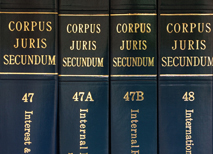Royalty Auditing Service
Technology Licenses
Recent studies have shown that the overwhelming majority of technology license agreements are never audited by the licensors even though it is a standard practice to include the right of the licensor to conduct an audit as part of the license. Further, 80% to 95% of all licenses that are audited show an underpayment of royalties. Studies have also shown that between 5% and 15% of all royalties may be unreported. This means that most technology licensors are leaving a significant amount of money on the table in the form of uncollected royalties because they do not have a program to periodically and systematically audit their license agreements for compliance.
While most licensees will not intentionally understate and underpay the amount of royalties due, problems often arise because of a misunderstanding or incorrect interpretation of the license agreement by the licensee. For example:
What is the specific licensed use?
What are the products the licensed technology can be incorporated into?
Are inter-company sales, transfer pricing sales and other non-revenue sales excepted?
Are deductions allowed to the licensed product selling price?
Are returns and bad debts accepted?
How does the license apply to leasing transactions?
If there is a gray area the licensee will make the interpretation in its favor, and if the license agreement is silent on a particular point, the licensee will also make the decision in its favor, both without the knowledge or consent of the licensor.
The type of royalty underpayments recoverable by a licensor come in two categories. The first and most obvious is the recovery of underpayments and interest for past errors and shortages. The second, and in many cases the more significant underpayment recovery, is the increase in future royalty payments due to the correction of the licensee error or misinterpretation.
Benefits of Systematically Auditing Your License Agreements
1. A royalty stream is an asset and proper audits and royalty recovery will increase the value of the asset;
2. Licensees will have knowledge that their agreements will be audited and will report royalties and use your technology without risky interpretations of the license agreement;
3. In the event of litigation, failure to exercise contractual rights to protect your intellectual property by means of an audit can be detrimental to your case;
4. Your reputation in the market as a company that aggressively protects its intellectual property will be greatly enhanced which will translate into licensees and competitors being much more likely to respect your rights and technology.
5. The cost of the audit can be reimbursed by the licensee. Most license agreements have (or certainly should have) a provision that provides the cost of the audit will be borne by the licensee if the audit shows an underpayment of 5% or more.
The Auditors A technology license agreement audit is much more than an accounting or financial audit and requires a set of skills not often found in accountants or other financial professionals. Royalty audits should be conducted by persons who, in addition to possessing the skills and experience to review and interpret financial reports (i) have a legal understanding of the intricacies of a license agreement and have extensive experience in drafting and interpreting technology license agreements because the legal terms and conditions are always the starting point, the end point and the core of any audit; (ii) understand the technology and the use of the technology by the licensee in order to determine if it is within the bounds of the license agreement; and (iii) have the skills and experience to negotiate and settle disputes because the discovery of underpayments in an audit will often result in a negotiated settlement.
We have over 20 years experience in all aspects of the life cycle of technology licensing including the financial analysis and auditing of technology license agreements. We can work with you to establish the strategy, tactics and processes for an audit program, review and revise your standard technology license agreements as may be necessary, target the likely licensee candidates for audit, conduct the audits at the licensee facilities, draft the audit report and collect/negotiate the underpayment and settlement agreement with the licensee as required.
Costs Depending upon the facts of a specific situation or of a specific program to be conducted by us, we can use one of two pricing models.
Hourly Rate - We will charge our regular below-market rate for the development and performance of the audit. This is the recommended model for situations with a small number of audits to be conducted or audits performed on a systematic basis with no prior knowledge or suspicion of underpayments.
Contingency - In certain limited situations we will discuss a contingency model where there is a fixed charge in lieu of hourly rate charge, and a contingency fee as a percentage of the royalty underpayments recovered.
In all cases above travel and living expenses are reimbursed by the client.









